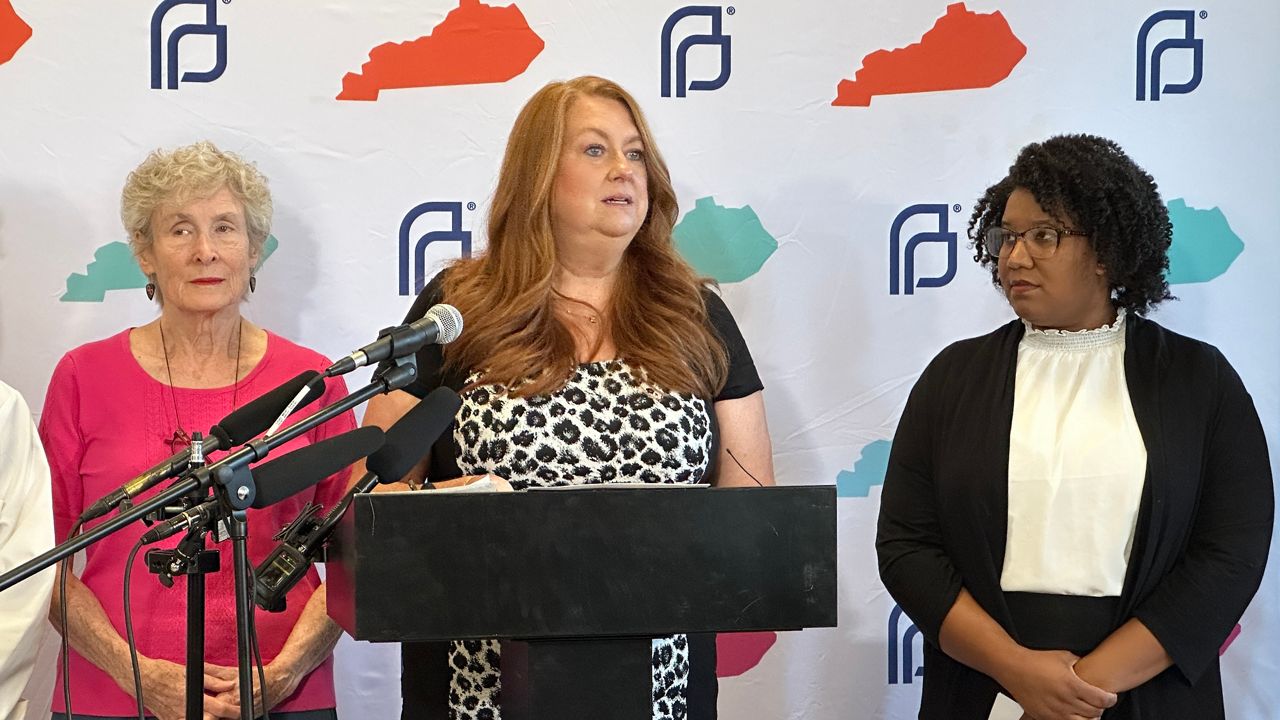LOUISVILLE, Ky. — June 24 marked two years since the Supreme Court overturned Roe v. Wade. The Dobbs v. Jackson Women’s Health Organization decision overturned the federal legal right to an abortion. In Kentucky, a trigger law went into effect, banning most abortions.
Medical providers and abortion rights advocates gathered at Louisville’s Planned Parenthood on the second anniversary of the reversal of Roe v. Wade to discuss the fallout.
Fewer medical school graduates applied to residency programs in states with strict abortion restrictions, according to the Association of American Medical Colleges. This topic was discussed at Monday’s press conference, which was organized by Planned Parenthood and the ACLU of Kentucky.
“Kentucky saw a 15% decrease in residency applications last year and a 25% drop in OB/GYN applicants over the last two years,” said Rebecca Gibron, the CEO of Planned Parenthood Kentucky.

Gibron, along with several others, shared information about the impact the Dobbs decision has had in the last two years.
“Barriers to care have increased exponentially for both our patients and for providers, mostly because of fear of legal ramifications also from the providers,” said Dr. Callyn Samuel, an OB/GYN.
Statistics on pregnancies resulting from rape were also talked about. There were approximately 65,000 rape-related pregnancies in the 14 states with near total abortion bans since Roe v. Wade was overturned, according to a Journal of the American Medical Association study. This includes Kentucky.
“An estimated 3,000 pregnancies have been the product of rape in Kentucky since the state’s cruel ban went into effect,” Gibron said.
Concerns about birth control and access to IVF were also mentioned during the press conference.
Spectrum News 1 reached out to Kentucky Right for Life to comment on what was discussed at the press conference. The story will be updated when they respond.



